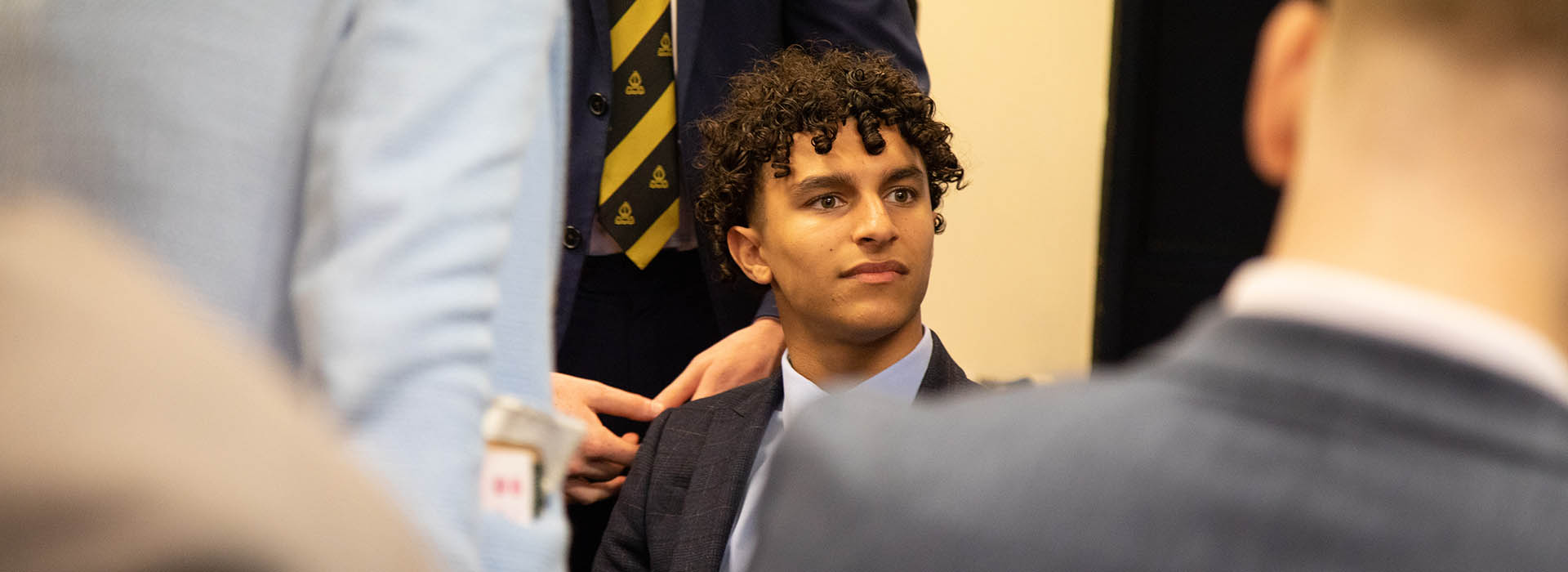History
“If you would understand anything, observe its beginning and its development.” – Aristotle
What is A-Level History?
Over the two-year course students complete four modules, which not only focus on different topics but also develop different historical skills. These are likely to include the following units:
Unit 1: British Period Study and Enquiry (25%)
Y101 – Alfred and the Making of England 871-1016 (Specific Document Enquiry on Alfred the Great)
Unit 2: Non British Period Study (15%)
Y212 – The American Revolution 1740–1796
Unit 3: Thematic Study and Historical Interpretations (40%)
Y318 – Russia and its Rulers 1855–1964
Unit 4: Coursework (20%)
Y4 – A Personal Study on a topic of the student’s choice
(A single 3000-4000 word essay which must include the use of primary evidence and historical interpretations)
In short, History is quite simply a way of thinking about the world – a subject which combines academic rigour and hard work with genuine fun and intrigue! It offers the opportunity to study fascinating characters and events from the past, allowing students to immerse themselves in periods and places that are both completely different, and yet fundamentally similar to today.
In Year 12, students analyse two contrasting nations from two completely different periods – both vital in understanding our modern world, and fundamental human ideas about ethnicity, power and liberty. We delve into the concept of revolution, exploring the fascinating story of the American War of Independence, and the birth of the United States as we know it today. At the same time, we also investigate the late Anglo-Saxon period, and the bloody conflict with the Vikings from Scandinavia – a story that offers a unique perspective on the emergence of English identity and England as a nation, both pertinent issues in the modern British political landscape.
In Year 13, we then study one of the most pivotal events in the C20th – the Russian Revolution, from the fervour in St Petersburg in the early C20th to the intrigues of the Cold War and Nikita Khruschev’s fall from power. We explore the impact of the Bolshevik seizure of power in shaping not just Russian history, but events and ideologies across the globe, clearly a critical topic in the modern geopolitical landscape. There is also the opportunity to choose an individual enquiry, on a historical topic entirely of the student’s choice, as part of our coursework unit. In the past student foci have ranged from the Spartans, to the slave trade, to the Suffragettes – the choice is yours.
As part of the course at TBSHS, we also offer a range of additional opportunities including a Sixth Form Discussion group, an ever-growing range of day trips, such as to see the musical ‘Hamilton’ or visit the British Library, a joint residential trip to Washington with the Politics Department, and the chance to attend lectures by eminent academic historians from Cambridge and London
What makes a Good Historian?
The successful History student will combine a thirst for knowledge with an inquisitive and questioning mind.
They will be excited by unravelling the mysteries of the past. They should be willing to read around the subject and must enjoy challenging ideas and developing their own arguments. Ideally, they should enjoy the process of writing essays – embracing them as opportunities to develop an analytical response to a complex issue – making links and seeing trends in past societies. Above all a good historian is someone who wants to ask “why?”
What Can I Expect To Learn In History?
As well as an insight into the past, and therefore a greater understanding of the present, History aims to provide students with analytical skills which can be applied in many varied contexts. A good historian will learn to understand, appreciate and evaluate different perspectives and interpretations. They will also learn to research and think independently, develop their own arguments and justify their opinions with both evidence and reason.
Where Could History Take Me?
History is easily combinable with a number of subjects at TBSHS and beyond including Politics, English Literature, Philosophy, Geography and Psychology. However a large number of students also combine History with Mathematics and Sciences as the use of evidence, logical thinking and academic approach are very similar. Careers which follow from a degree in History are hugely varied, including Law, Journalism, Business Management (10% of the directors of FTSE 100 companies have History degrees), Education, Research, Public Relations, Politics, The Civil Service, The Diplomatic Services and Consultancy. However, as a highly valued academic discipline, a strong History degree opens many surprising doors in unexpected areas.


